I feel for those young people who are thirsting for advice on how to improve their leadership skills. Where do you turn for trusted information? Who’s leadership narrative do you believe?
It’s overwhelming, to say the least. Google ‘leadership’ and you are presented with way too many sources that can reasonably be consumed — that is if you can actually find a source that sounds good to you.
These are 5 myths about sales leadership that are promulgated by most pundits of the craft.
They have charisma
There is a view that a good leader must possess the aura of charisma; that quality that they have to WOW! the person they are engaging with.
I would characterize the common view of charisma as ‘communications on steroids’ and a classic case of style over substance — Roy, not stylish
If you’re wanting to build your leadership skills, don’t put ‘need to be more charismatic’ on your list of things to improve on.
What worked for me was honest emotion (to be genuinely passionate about what you are talking about), simplicity (to talk about things in simple terms that people can understand) and informality (to be real — not slick — in what you say and how you say it).
Charisma is for showmanship, it’s not for leadership. I didn’t think Steve Jobs was charismatic, did you?
They have vision
Great leaders possess the almost indescribable talent of being able to see into the future and know what the success ingredient for their organization is. Right?
Well, there are perhaps a few individuals who (in retrospect) had this gift — Jobs is the only one that comes to mind — but for most of us common leaders the vision thing is a non-starter.
At the time Jobs was spouting off about carrying music around on a device, did anyone say ‘WOW! This guy has vision’? No! It only became apparent later (and after a series of other device innovations) that his view of what customers would desire was extraordinary — and I would suggest that if Apple hadn’t executed on his plan, his ‘vision’ label might never have been gifted to him.
Having vision is not a leadership requisite because it is only realized in retrospect. You can’t learn this skill; other competencies provide the opportunity to earn the vision label after you have achieved amazing things.
They handoff to others
Leadership school teaches you that you must be good at delegating tasks to others. I see leaders delegating too much.
Be careful, there is a significant difference between constructive delegation and abdication.
Appropriate delegation occurs when the leader hands off tasks that better fit the competencies of the people that report to them, but the outcomes are carefully monitored and managed by the leader.
Delegatory abdication occurs when the leader hands something off and quickly dismisses any accountability for the results — Roy, DIY leader
I have seen many leaders in my time abdicate their responsibility under the name of delegation.
Is delegation an appropriate skill of an effective leader? Yes, but it comes with staying involved with what is handed off, monitoring progress and holding people accountable.
They command
It’s common to portray an amazing leader as being a tough commander.
This is the person who takes charge almost with brute force and singlehandedly orchestrates the outcome everyone is delighted with; they are at the top of the pyramid and there’s no question about who’s in charge.
This is the leader who acts, directs, disposes instructions and who spends little time asking for input and suggestions — one who stands alone and is almost divinity-possessed in the face of crisis.
The commander leader is old school; who rose to adulation in wartime, not in the conduct of the realities of organizations today — Roy, out of control
Today, the commander should be number 2 in identity, with servant-ship in the light. You don’t have to be a great commander to be a standout leader; focus on asking people ‘How can I help?’ rather than commanding them to ‘Do this!’
They act with precision
This myth deals with the notion that a great leader needs to provide precise direction in terms of the organization’s future; they need to provide absolute focus on what the end of the journey looks like.
Well, it’s not required; in fact, it’s a negative. Searching for clarity is a time-consuming activity with a purpose that can never be achieved. In an environment of chaotic, rapid, and unpredictable change, how can any future be perfectly clear — did anyone out there predict COVID-19?
The standout leader is ok with a fuzzy idea of where they should go. They understand the importance of executing on a chosen path and learning on the run whether it was the right choice; that making adjustments to a plan slightly out of focus is more important than wasting time searching for a clear path that doesn’t exist.
They don’t micromanage
Effective leaders are supposed to deal with the big issues in an organization. Building strategy, overseeing financing, negotiating mergers and acquisition,s and managing the board of directors would qualify as key roles in their job description.
But what about the so-called ‘little things’ that require their personal fingerprints to get done the right way? Nope, they get delegated because the book on leaders says don’t micromanage.
Leaders are encouraged to not dabble in the details because they can be more effectively dealt with by the more junior crowd of managers.
That’s a myth. There are some (not all) matters that require the leader’s active involvement in order to produce the exact outcome needed.
For example, painting a picture of exactly how a customer transaction should look like for employees is something great leaders do regularly.
They spend time with customer contact people on the frontline describing the behaviors necessary to WOW! a customer; they choose not to allow this very crucial element of their organization’s strategy to be handled by junior managers. They know that the right consistent outcome of a customer’s moment of truth needs the view from the top, and they dive in and provide the direction themselves.
If you want to step up your leadership game, be careful to avoid these 5 myths promulgated by the pundit crowd; they can stultify your efforts to take your skills to the next level.



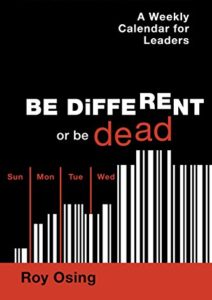
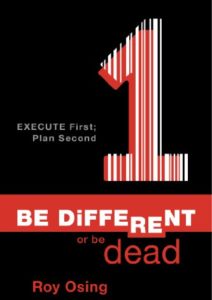
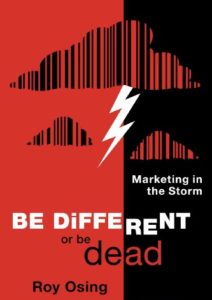
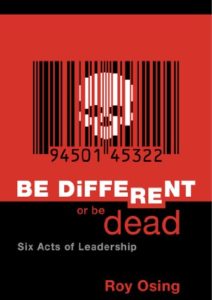
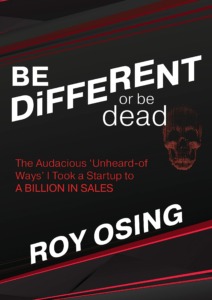
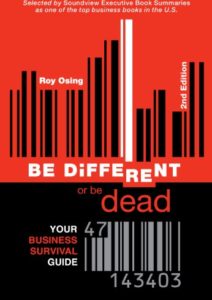









Comments (2)
I love this article greatness in sales
Very thought provoking